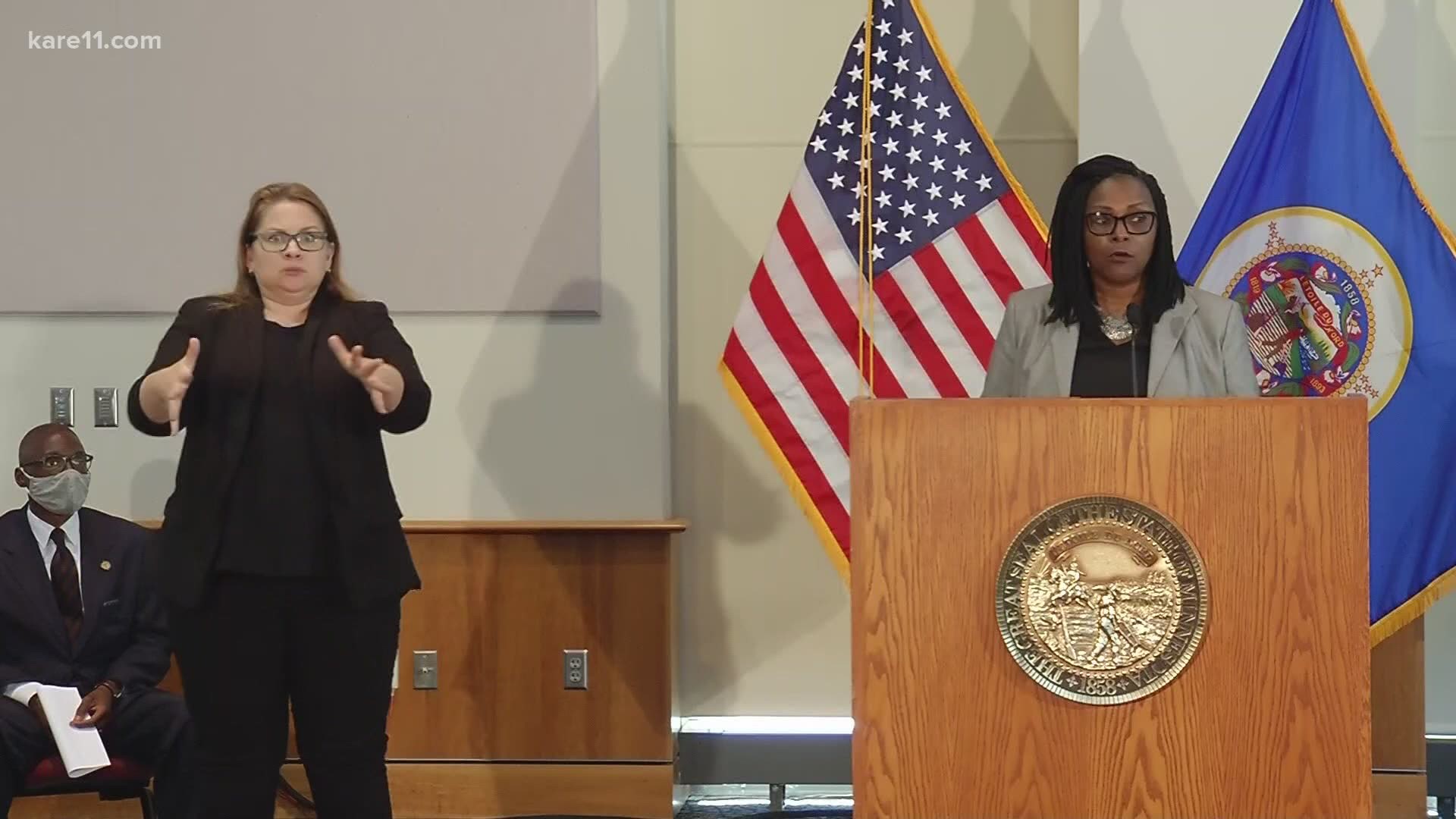ST PAUL, Minn. — A group of state lawmakers who belong to the POCI Caucus -- People Of Color and Indigenous legislators -- will play a high-profile role in the special session, especially around criminal justice reform.
They announced a slate of police reform bills in the aftermath of George Floyd's death in police custody Memorial Day, including some legislation that has previously been heard in the DFL-controlled House but hasn't gained traction in the GOP-controlled Senate.
Gov. Walz put the spotlight on the POCI Caucus in his Thursday press conference, and made it clear they should be in the driver's seat when it comes to the bills aimed at increasing police accountability and reducing deadly use of force by officers.
"Minnesota will change the way we do policing. Minnesota will change what accountability looks like. And Minnesota will start to lift up those voices who for too long have felt like they haven't been heard," Walz told reporters.
The slate of bills includes a ban on chokeholds, changes to use-of-force regulations to make it easier to prosecute officers in fatal encounters, centralized prosecution of all officer-involved homicides, more transparency in discipline records and a ban on "Bullet-proof Warrior" style training programs.
Senate Republican leaders have said there hasn't been enough time to vet the police reform bills, and each one will need to be heard by multiple committees before the full Senate can take any action on them.
Sen. Jeff Hayden, a Minneapolis Democrat who lives eight blocks from where Floyd was killed, urged Republicans to join the House Democrats in making those reform bills a priority now.
"Black folks are sick and tired of literally suffering when people telling them to wait until the moment is right, wait until we know more about the measure’s you’re calling for," Sen. Hayden remarked.
"How many black and brown women have to die before an urgent response is warranted?"
Rep. Carlos Mariani, who chairs the House Public Safety Committee, said many of these ideas have already been adopted by other states and cities across the nation.
"It’s not enough to tell people to tell people what NOT to do. It’s important particularly from our public servants, to express powerfully what it is we expect of them," Rep. Mariani explained.
"How we want them to reflect our values, our values of valuing the sanctity of life."
Mariani's committee will hold a hearing Saturday, from 12 p.m. to 8:00 p.m.
To read all the bills, go to this link: Public Safety Committee Hearing Agenda
Several of the lawmakers tried to convey that black Minnesotans live in a different world than white residents, when it comes to their overall impressions of police and the nature and tone of interactions with officers.
"For my sons, me, kids on bicycles, or driving car -- when we have a police officer come up behind us it makes us tense, makes us fearful," Rep. Rena Moran of St. Paul said.
"It's not because we’re doing anything wrong, but because of the interactions, relationships we have seen come from police officers."
The package of legislation also includes a bill to restore voting rights to former felony offenders as soon as they're released from incarceration, something that would instantly make an estimated 50,000 Minnesotans on probation eligible to vote.
"Giving people the ability to vote is the most core thing we could do right now to give people a voice in their government and how we move forward," Rep. Jamie Becker-Finn, a Roseville Democrat, asserted.
That bill has already passed the House several times, but has never reached the Senate floor for a vote despite having bipartisan support in that chamber.
Republicans have said they're wary of taking steps to address the Minneapolis Police Department if it would have adverse impacts on police agencies across the state.
Rep. Moran acknowledged that many people in suburbs and small towns have great relations with officers, because they are their neighbors and may even go to the same churches.
"We'd like to have that too, in our communities," Moran lamented.
The overwhelming majority of the officers in the Minneapolis Police Department live outside the city. There is no residency rule in the city and, generally speaking, housing prices and property taxes are lower in suburbs.
RELATED: Group of Minneapolis police officers writes open letter condemning Chauvin, embracing change
The governor lacks power to stop a special session once he starts it, and this one is unusual in recent history because there's no agreement between leaders on when it will end.
"George Floyd was a son. He was a brother. He was a father. He was a loved human being, and we will take as long as it takes to address that injustice," DFL House Speaker Melissa Hortman said.

